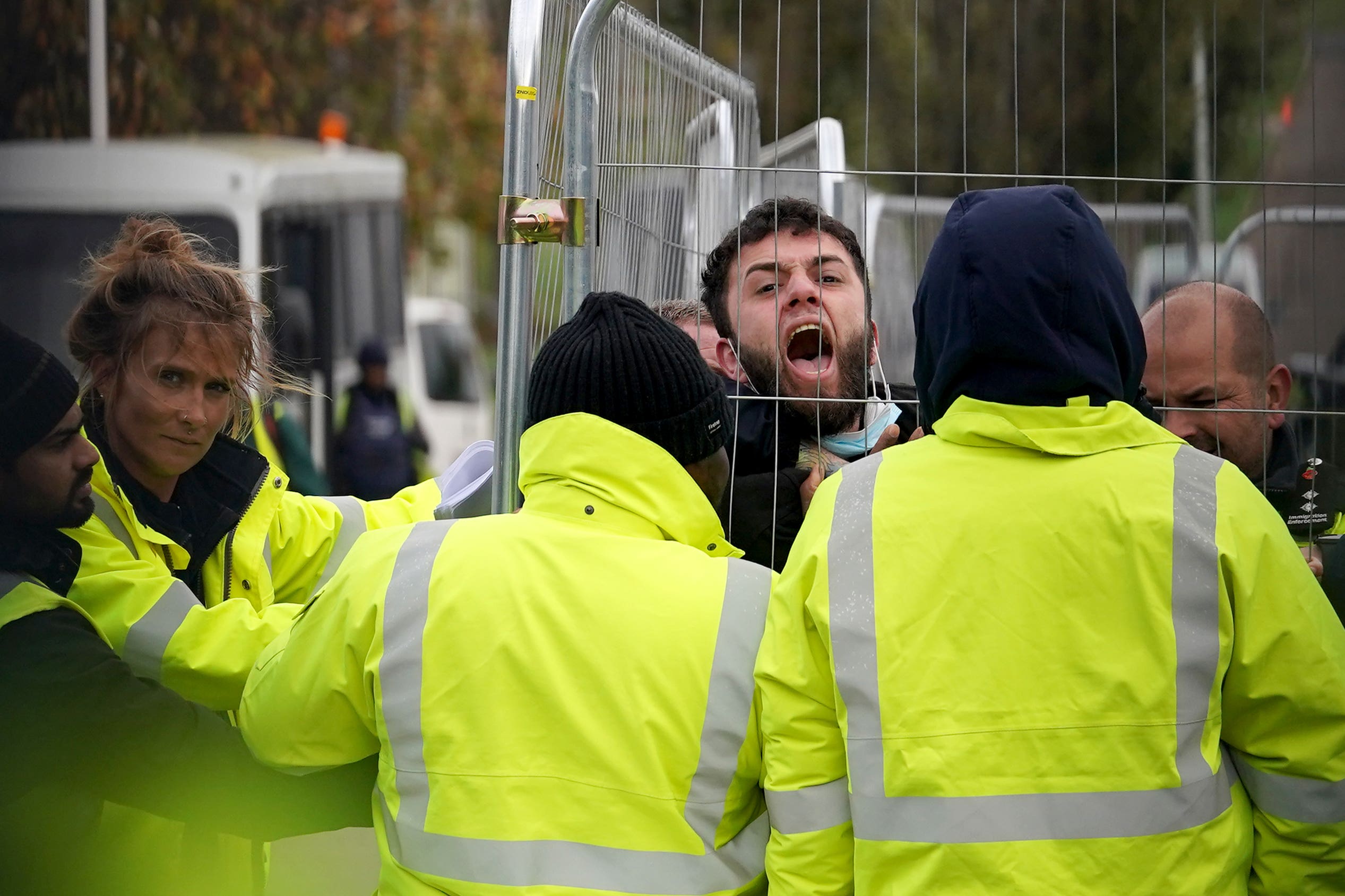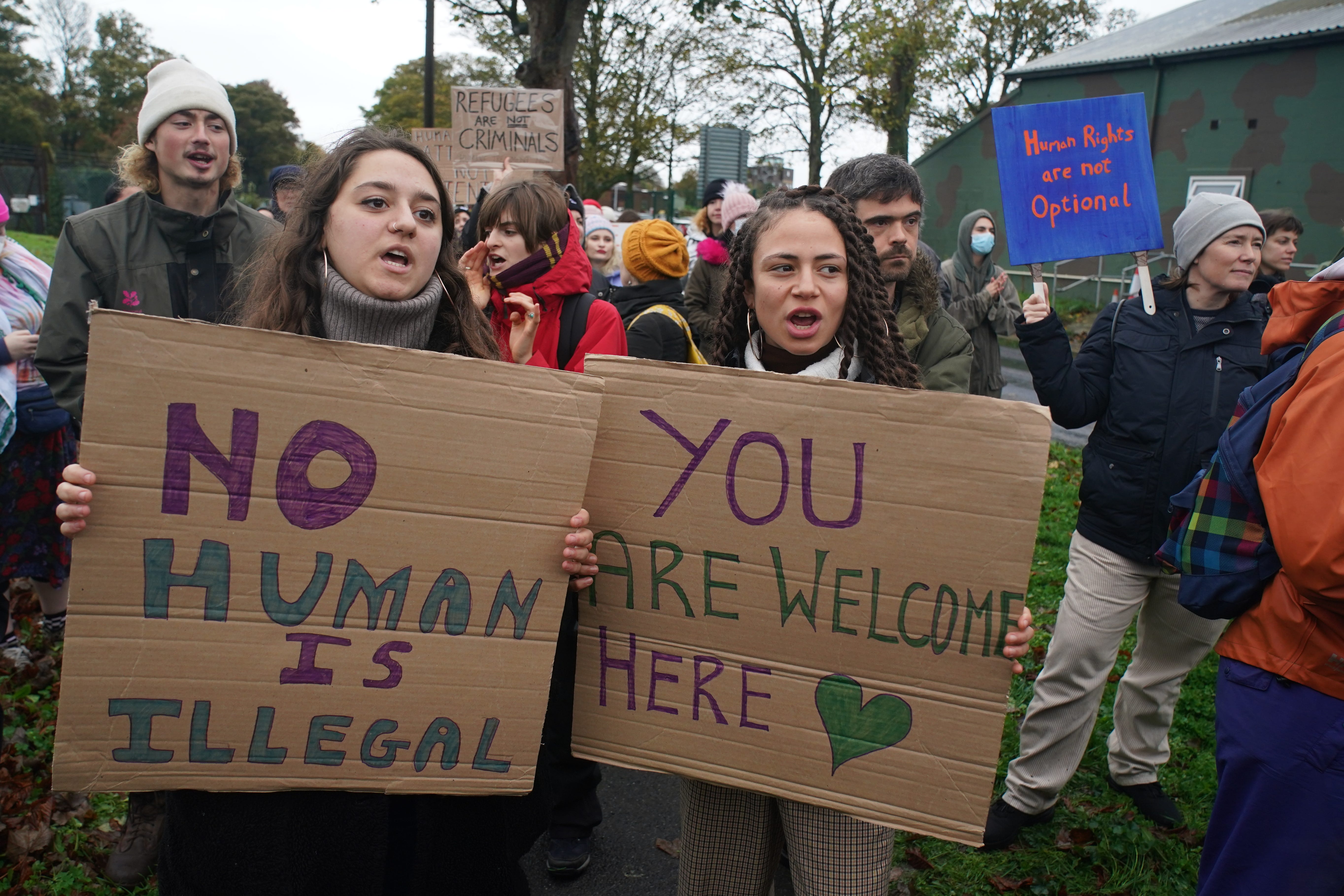Home Office ‘running to keep up with crisis’ over Channel crossing surge, says MP after visit
Crisis ‘not over’ at Manston processing centre, ministers warned
Your support helps us to tell the story
From reproductive rights to climate change to Big Tech, The Independent is on the ground when the story is developing. Whether it's investigating the financials of Elon Musk's pro-Trump PAC or producing our latest documentary, 'The A Word', which shines a light on the American women fighting for reproductive rights, we know how important it is to parse out the facts from the messaging.
At such a critical moment in US history, we need reporters on the ground. Your donation allows us to keep sending journalists to speak to both sides of the story.
The Independent is trusted by Americans across the entire political spectrum. And unlike many other quality news outlets, we choose not to lock Americans out of our reporting and analysis with paywalls. We believe quality journalism should be available to everyone, paid for by those who can afford it.
Your support makes all the difference.The Home Office failed to make “adequate preparations” for a predicted surge in small-boat crossings in the English Channel, the chair of a parliamentary committee has said.
MPs have visited the Manston processing centre in Kent following the admission by officials that it had become overcrowded and that thousands of asylum seekers were being detained – potentially unlawfully – in tents.
A drive to find new hotel places to move people into has seen the population at the centre reduce from 4,000 to within the former military base’s intended limit of 1,600, but the government has been warned that the crisis is “not over”.
The chair of the home affairs committee, Dame Diana Johnson, visited Manston with members of parliament’s human rights committee and equalities committee on Tuesday.
She said that what they saw “revealed that while overcrowding has reduced, and staff are making valiant efforts to improve conditions for detainees, the crisis is not over”.
“We encountered families who had been sleeping on mats on the floor for weeks,” she added.
“Meanwhile there are ongoing questions about the legality of the home secretary’s decision to detain people at the site for longer than 24 hours. The Home Office has been running to keep up with this escalating crisis, rather than warding it off at the outset through planning and preparation.”
Dame Diana said that the almost 40,000 migrants who have arrived in small boats so far this year “will not have been a surprise to the government”, which models potential numbers after years of record-breaking increases.
“So why were adequate preparations not made?” she asked. “This question matters – because we may still see another major upsurge in the number of people arriving at Manston before the end of this year. The home secretary needs to end this crisis once and for all.”
Suella Braverman has denied ignoring legal advice warning that Manston was being transformed from a processing centre intended to hold people for 24 hours into an unlawful detention facility.
She has been accused of failing to procure sufficient onward accommodation, including hotel spaces, to enable asylum seekers to be moved off the site. Further pressure is expected over the coming weeks, given that last year November was the month with the highest number of crossings in 2021.
Anum Qaisar, a Scottish National Party MP who joined the visit as a member of the women and equalities committee, told reporters afterwards: “I saw young children in tents, and the reality is that the home secretary has a lot to answer for.”
Hours after MPs arrived at Manston on Tuesday, journalists witnessed a man being pinned against a fence and dragged out of view by guards after shouting “Help”.

The man, believed to be a migrant who had arrived on a small boat, called out to reporters that he had been at the site for 30 days. At this point, staff members asked him to stop shouting.
News agencies reported that the man did not stop. He was then captured by photographers being pinned against a fence by four or five staff members and taken away.
Responding to an urgent question in the House of Commons on Monday, the immigration minister admitted that “the law is clear that we should not detain individuals at sites such as Manston for longer than 24 hours”.
Minister for immigration Robert Jenrick added: “There are competing legal duties on ministers. Another legal duty that we need to pay heed to is our duty not to leave individuals destitute ... that is why the home secretary has balanced her duties and taken the required steps to procure more hotel accommodation as swiftly as we can.”
The independent chief inspector of borders previously told the home affairs committee that he was left “speechless” by the conditions he witnessed at Manston in October.
David Neal said he had met an Afghan family with young children who had been sleeping on mats in a tent for a month, while cases of diphtheria and scabies had been reported.
“These are pretty wretched conditions,” he added. “My view would be you plan for the worst and hope for the best. I think that attitude is absolutely critical if we are going to deal with the consequences of people being detained in a safe and humane manner.”
Legal action is under way over the conditions at Manston, and the High Court is expected to decide two challenges over the Rwanda scheme in the coming weeks.

The Manston centre is used for processing migrants, which involves recording asylum claims and taking photos and fingerprints, after they are brought ashore from small boats that have crossed the Channel.
People are given initial care at the Western Jet Foil facility in Dover, which was firebombed in a far-right terror attack on 30 October. Two people were injured in the attack, after which the perpetrator killed himself at a nearby petrol station.
Parliamentary committees, charities and politicians, including French president Emmanuel Macron, have called for the UK to reduce Channel crossings by providing more safe and legal alternatives.
Instead, the government has hinged its hopes on measures it claims to be “deterrents”, such as the Rwanda deal and Royal Navy patrols, but numbers have continued to hit new records.
Downing Street said a new deal with the French government with the aim of preventing more crossings was in its “final stages” following a meeting between Rishi Sunak and Mr Macron on Monday, but provided no further details.
A record backlog of more than 100,000 asylum cases has built up after decision-making slowed and the government changed its rules to declare small-boat migrants’ applications “inadmissible” because they had passed through safe countries.
Britain has not been able to send asylum seekers back to EU countries since Brexit, and its attempts to send the same category of people to Rwanda has stalled amid legal challenges.
Applicants must be present in the UK to claim asylum, and there is no visa to travel to the UK for that purpose.




Join our commenting forum
Join thought-provoking conversations, follow other Independent readers and see their replies
Comments